Anti-Heroes and the Appeal They Have in Comics
When you think about anti-heroes in anything you’ve read or watched from 2013 to now, you might have noticed most of them have a back story that is leaning towards giving the reader/watcher some sort of sympathy. Despite the character on the TV screen being a flawed and most of the time corrupt human being, along with lacking any heroic traits, there’s something about their struggle that leads them to where they are that makes you feel sorry for them. Depending on the genre you are watching, the anti-hero could be differently created—but, that often brings up the question what is the difference between the anti-hero and the villain? And how do those differ from the hero? If there is one. Have they found that line where you as viewers blatantly see two different characters? Most anti-heroes could also be considered villains for the most part and vice versa. It also might have something to do with the fact that television is going darker and darker as the year’s progress.
What is an Anti-hero?
An anti-hero is essentially a character who lacks attributes a hero should have, a villain, is someone who conspires up evil plans and sometimes kills other characters for their own benefit—majority of the time for their own benefit. They could be intertwined and some anti-heroes possess villain traits and so on.
When anti-heroism began with Greek Tragedies, it was something original and something no one even really knew about. What they were doing in these plays was something fresh and new, so it was not overused. It started with a flawed character who was intending on being good but essentially went back to their old habits every now and again to get what they needed. This character makes emotional moral judgments that the hero would not otherwise make. With the diversity of different types of anti-heroes, it could cause it to become overused. Superhero movies have a huge fan base for anti-heroes because they derive from the comics and the comics are one of the things that also created the glamorization of the anti-hero. For every anti-hero you had in a comic it would be followed by a hero and a villain; normally, all three would be included in a series, they needed one to have the other and so forth for the plot.
When is an Anti-hero Successful?
What declares an anti-hero a successful one, would be the character back story and depth; such as, the things that they’ve done and how crucial were they and if they still do them now and how often.
Black Widow (Newer 2015 Version)
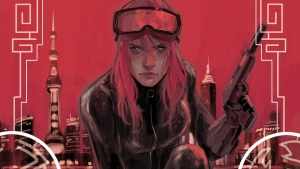
Like stated above, superhero movies pull off the anti-hero very well. Black Widow would be a very good example, as well as Catwoman. Black Widow is an anti-hero because she’s, of course, an avenger, but she’s also still someone who was a villain first and foremost. She kills and fights to get what she wants and most of the time those people are innocent that she kills and fights. She does not do this often, but alas, she does do it.
Selina Kyle a.k.a., Catwoman
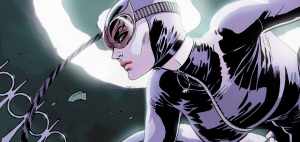
Catwoman is mostly a good anti-hero, but she is also a thief and a burglar and on many occasions fights with Batman. She’s also on his side a fair share, so that makes her, in a sense, that line we make between the anti-hero and the villain. Both of these examples have very good backstories as to why they have gone from a villain to an anti-hero, so when we see them go back to their old ways we feel sympathy because we know what they’ve been through.
Deadpool (Wade Wilson)

Deadpool would also be considered an anti-hero because Wade Wilson is selfish and he uses most of the good he does for his own benefit; but, when he does do good things that aren’t for his benefit he could be a good guy. You can see that when he teams up with Spider-Man and Hawkeye. He can genuinely be a decent person; but, that’s only 15% of the time and that’s being generous.
When is an Anti-hero Unsuccessful?
What constitutes an anti-hero character an unsuccessful one? Qualities, if they have less redeemable qualities, then they are more than likely a villain or simply just a character (antagonist, etc.) Throughout plenty of series’, comic book characters have went from hero to villain to anti-hero back to hero again and it works when it does, but most of the time it doesn’t and makes a character seem like someone they are not or simply unreliable. Not only that but switching a character from hero to anti-hero makes it unsuccessful after that fact because we already viewed them as a hero with heroic qualities and then they all of a sudden start killing innocent people, it just doesn’t look good to the reader’s eye. Another thing is the beginning of a character’s arc, if they don’t show redeemable qualities starting from the beginning of the introduction of the character, it’s really hard to make them an anti-hero after that fact. Like mentioned before, the back story is one of the important things for a successful anti-hero.
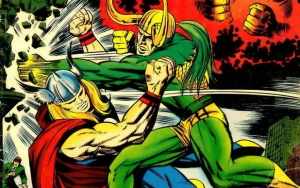
If Marvel then tried to take a villain character such as Loki from Thor and make him an anti-hero, it wouldn’t necessarily work and here’s why: Loki is in for the better good of himself, it’s rare, if at all, that he will change that fact even when he tries his hardest. Loki is too much of a villain, the qualities that he possess are too cruel for him to become an anti-hero. He is a likable villain, but a villain nonetheless. If Marvel were to change that character into an anti-hero, he wouldn’t be liked as much because it doesn’t suit who he is as a character. The same effect with Thor, he is a hero and if they made him an anti-hero it wouldn’t have the same effect as him being a protagonist hero character. Seeing Thor do any bad just doesn’t seem right to the comic readers eye because he’s been a hero for decades. An anti-hero has to possess those qualities to begin with, so the introduction of their characters would have to have some redeemable quality that leads them to be an anti-hero down the line.
Hulk or Bruce Banner (human version)
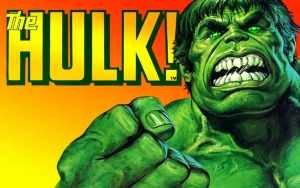
A character that wouldn’t be considered an anti-hero, but frequently is, would be the Hulk. Simply because Bruce Banner didn’t choose the Hulk and when he is, he doesn’t necessarily have full control over his actions. Although, the Hulk does attempt to do what’s best for him and his team (the Avengers), sometimes he does do non-redeemable actions without realizing it. The reason that he wouldn’t be considered an anti-hero is because he doesn’t know what he’s doing until he is Banner again. The term anti-hero wouldn’t apply to the Hulk, he isn’t exactly a hero, but he isn’t a villain or an anti-hero either. Hulk just might be his own character in itself.
Harley Quinn and the Joker
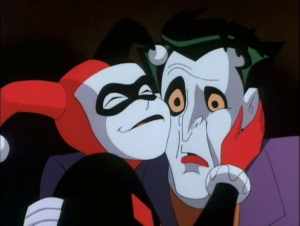
A comic book character that is strictly a villain, because she sides with the Joker quite a bit (they also had a previous on/off romance) would be Harley Quinn. Some do consider her an anti-hero, but she doesn’t have many redeemable qualities since she sides with the Joker whenever she can, which concludes her as an unreliable character. She would have redeemable qualities if she didn’t do most of what she does for the Joker or for herself. She has done some good, it’s a rare situation, we can’t deny her that fact, but she also has done more bad than good. Then again, her character didn’t have many redeemable qualities to begin with when her character arc started, so if she was considered an anti-hero by the creators of Suicide Squad and the Harley Quinn comics, it would be an unsuccessful title.
What it comes down to is, a character being true and honest with good morals and intentions are not what appeals to the audiences anymore. That’s where it is changing. Watchers and readers don’t see heroes around them in real life, they see anti-heroes and that’s what they want to see on the screen as well. It’s a relatable factor. Watchers and readers love to relate. They don’t see themselves in a hero like they used to and they are ready to move to more realistic characters and that’s what an anti-hero is.
There is a fine line between a hero and a villain and that is where an anti-hero stands.
What do you think? Leave a comment.
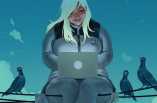
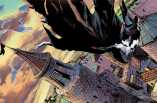
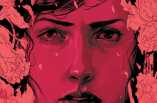
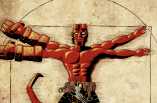
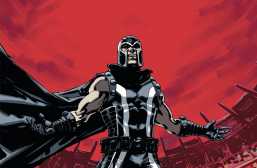
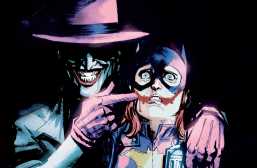
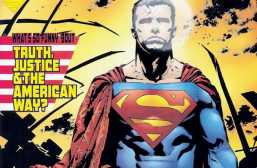
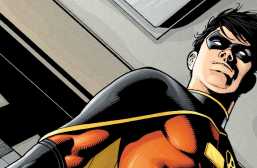
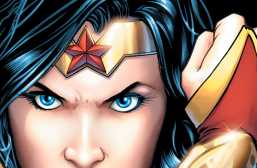
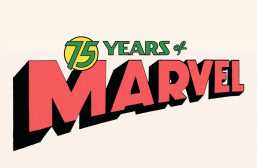
Anti-heroes are more realistic. People in real life don’t always fight for “truth, justice, and the American way” like Superman or Captain America. This is why I’m a big fan of the X-Men. Wolverine has a clouded past and his bloodlust gets in the way sometimes. He also can be a bad teammate, but he has a nurturing relationship with Shadowcat, Rogue, Jubilee etc. Gambit also has been a member of the Thieves’ Guild and a Horseman of the Apocalypse, but he joins the X-Men to control his powers. I love heroes with inner struggles that’s why I’m a Marvelite.
The inner struggles is something that I love to see as well! Characters like Spider-Man and as much as I love Spider-Man, he doesn’t really have struggles. He depicted as a hero, and aside from being a nerdy kid at school and having a hard time with the ladies we don’t get too much of a struggle with his life. We get it with himself, finding out who he is internally, but never something you can relate to, I feel. I love Wolverine, so I agree with you 100% right there, it’s so great to see these characters have similar humanistic problems.
I like reading about the conflict between hero and anti-hero. Like when Spider-Man teams up with Punisher.
This is really interesting. I’ve always kind of had a list in my head of anti heroes I like, but I’ve never given much thought to characters that don’t work as anti heroes. I think we like these characters so much because they feel a bit more human than the guys that always do the right thing- we see a redeemable version of ourselves in them. That being said, in the cases you mentioned this “anti hero” trope probably would not translate well.
Yeah, for sure, something that I think as well. There’s a sense of Harley Quinn being purely good that doesn’t sit right with me, you know? Something that’s kind of off about it and I don’t think I would be able to get used to it. There are instances where someone could turn to a hero, but they would have to have some incredibly redeemable qualities for that to partake.
“There is a fine line between a hero and a villain and that is where an anti-hero stands.”
I would venture to say that there is an even finer line between an anti-hero and a villain, as your article implies.
–and the line get’s finer and finer as each year passes and they create even more complex anti-heroes.
This is a great post. I’ve found that antiheroes are usually easier to relate to. Also whether a character is a hero or a villain often depends on your point of view. You make good points about why Loki could not become an antihero, but I think it could be done. It would be difficult because as you pointed out, he (or any similar character) couldn’t lose all the traits that make him interesting, but it’s not impossible. I think it would depend a lot on the tolerance of individual readers/viewers.
Anti Heroes are whatever about what they do. Sure they can save the world, stop a robbery, rob, whatever it is they do, but it doesn’t really affect them. Like I don’t think they do things because they feel pressured into doing them, they just do them (usually forced to do them) because they’re told. I’ve also wondered why people label the hulk as an anti-hero, so thanks for clearing that up for people. This was a good read and quite educational…Keep it up!
Anti-heroes can be some of the most intriguing characters because their motives are often hard to pinpoint, thus creating enigmatic personalities. Other examples of anti-heroes, expanding outside of the comic universe, include: many of Lost’s characters, particularly Sawyer, and Ian Flemming’s original version of James Bond—he is first, and foremost, a 007.
I think my favorite anti-hero is without a doubt Severus Snape from Harry Potter. He is an amazingly awful human being whose favorite pastime is bullying children and being generally mean spirited and vindictive but, for love of a good woman, ends up being an amazing example of bravery and goodwill. Is Snape terrible, yes? Is Snape amazing? Yes.
These are the two questions I find work best for figuring out if a character is a villian or an anti-hero. I could never label any villain as amazing (connoting a sense of awe) Like Heath Ledger’s Joker never inspired awe within me, only a very primal sense of overwhelming fear.
Also, I think a good definition might also be a person whose actions are heroic (save a lot of people, protect innocent lives, etc) but whose intentions are not. Ex, I did not intend to save the bus full of people, but I had to to stop this person I really don’t like.
It would be great to see an in-depth analysis of one of these characters as an anti hero!
An interesting argument is what separates and anti-hero and a villain with relatable motivation? Take Magneto for example. In one respect, he is hurting other humans because he sees them as irredeemable in a world filled with discrimination and torment. On the other hand, He has a relatable reason for doing what he does, since he was treated harshly in a concentration camp in World War II. In his eyes, humans are villains in our world, and in may regards he is right.
Oh yeah! Ultron is/was the same way right? I mean, they believe what they are doing is for the better of humanity. Bane thought the same thing and so on; which, is true, I can’t deny that fact and in most cases they have good ideas, they just go about them in different ways. Especially when government comes into play, you see that happen quite a bit as well!
It would be a cool book to make a character that had a split personality. Having both a hero and Anti-hero in one character to really mess with his enemies.
That’s actually something I would love to see, imagine that! I feel like it would be someone like Hawkeye, or maybe it could be Hawkeye. I could see him being both if he’s not considered both already!
I like a balance between heroes and anti heroes. In the DC comics I’ve read, I like how Superman is often effectively Batman’s conscience, reminding him of the line between right and wrong.
It’s funny that you mention that because a friend of mine actually wrote a short story like that with the MC having a second (and dark) personality he didn’t know about and he spends all of the story trying to capture a villain who turns out to be himself.
They’re more based in reality & have better more down to earth costumes.
I, for sure, agree with the down to earth costumes haha!
Call me old fashioned but I always think that characters are more interesting if someone is a hero or a villain and nothing in between. To me the anti-hero gets very limited he will just do things the hero won’t do.
But I guess that is the appeal of the anti-hero: they do the things a normal hero would not do. Also, like others have said, they seem to be easier to relate to because they also have their fair share of problems in life and that’s what drives them to do the things they do.
yeah, that’s kind of how I see it. there’s a realistic aspect to the anti-hero. they are human and make mistakes, you see that they actually have human instincts. That’s the appeal, we, as humans, like to relate to someone because it shows us we’re not alone and anti-heroes do that for us.
An interesting piece, though I have to disagree about this “locked” view you seem to have of some of these characters. Honestly, any heroic or villainous character has the potential to be an anti-hero. Take your example from earlier, Loki. Yes, Loki has been shown to be quite duplicitous and honestly just not a very good person since his creation in 1962. But, and this is important, he’s always been on the lookout for Number One: Himself. This is key to his transformation. During the events of the 2010 crossover Siege, Loki engineered an assault on Asgard to gain control of the throne once again. He was driven to this moment by greed, by a thirst for power. But, towards the end of the siege, Asgard began to be destroyed by the uncontrolled power of the Sentry, which woke Loki up. He didn’t want this. He wanted Asgard to himself, he didn’t want it destroyed. What good was that? So, realizing what he had done wrong, he sacrificed himself to save everyone. And that is where the character started to take the shape that he resembles today. He was later reborn as a child, one with the potential to do good. And he’s been on that path ever since. Even the latest series, Loki: Agent of Asgard, has him actively trying to be better. He’s not perfect by any means, but he’s trying. Loki works as an anti-hero specifically because of the things we have seen him do before, not in spite of it. Because we’ve seen the heinous things he’s done in the name of himself, we root for Loki because we know he’s trying to be better, something we all can relate to. Anti-heroes that start as villains are easier to relate to than those that start as heroes due to our human desire to be better than we are, which is exactly what characters such as Loki, Magneto, and almost the entire cast of any incarnation of the Thunderbolts are. And even the anti-heroes that start their lives as heroes we at least feel sympathy for because we know they’re better than what they’ve become. It doesn’t ring any less true (unless that character is Superman, but that’s a whole ‘nuther thing). A character is never chained down by their past actions. A character worth any measure of salt should be able to overcome those past mistakes or fall from grace at any point because that is who we are as people: ever-changing.
I really really like this point of view you have, I never quite thought of it as the other way around. I don’t know if I particularly like villains turning to anti-heroes, it would have to depend on what they did as a villain and so on for someone like me to forgive they could ever try and be good you know? I feel like that’s with Loki, the newer versions are great! But, the old school version, I couldn’t ever believe that Loki wouldn’t be out for himself at any point. Like the Joker, I couldn’t believe he would just help someone else, not for his benefit. I don’t trust people and characters in that sense. I really like what you stated, it really does give me a different outlook on what exactly these characters are doing and how the opposite effect can work as well. I dug that last sentence, I thought that was marvelous! It’s really something to think about, as far as all these new characters being evolved in the marvel universe and even DC.
I think what I love even more than anti-heroes are fallen heroes, or heroes turned villain, for whatever reason. Whether they’ve been “corrupted” or whether they’re under a greater villain’s control, I always find it more interesting watching someone who was once good fall to the Dark Side. No pun intended there when I say Darth Vader is a perfect example of this–probably the best one, actually. Whether you loved or hated the prequels, I always loved Revenge of the Sith because it’s that pivotal moment in which he turns from good to evil, because he’s been corrupted AND thinks his actions are right. He’s a villain, not an anti-hero, but an awesome villain nonetheless. Great article!
Right! The view of someone who was good falling to the dark side is something that is so human…I guess one could say. There’s something human about someone falling from grace because it happens in actuality. We do that as humans and it’s another human aspect of the characters. There are some awesome villains in the air and I can say that, there’s some that just do the villain so well, I wouldn’t want to see them as anything else!
Thank you!
Wow, I never thought of it like this! I always just sat and read and enjoyed comics, I never stopped to think that there were two different types of villains, or what exactly makes a villain, besides the obvious. I do have to respectively disagree about Harley Quinn. I would consider her an “anti-hero” because while she does side with Joker, in Gotham City Sirens, she goes straight and becomes “good” to better her life and try to be normal.
Great article, though! I really enjoyed it!
That’s what I like about the position of anti-heroes and villains and heroes, the reader themselves can depict how they see the character. I do agree with you on Harley Quinn to an extent, I mean I am kind of on both sides with her, so it was hard to choose just one. She can be both a lot of the time and she is majority of the time.
Thank you!
I love the relatable ending – it’s definitely true. Wish it was a bit longer though!
No mention of The Punisher? The reason the anti-hero works so well in American popular culture is due to its expression of an anxiety. That is, the anti-hero is often a person who embodies the conflict of “moral good” vs. “greater good.” For example, is the bombing of innocent civilians a justifiable cost if it means winning against an ‘evil’ aggressor? The nuclear bombing of Hiroshima and Nagasaki are subjects that are heavily debated today because of this moral conflict.
Or, domestically, ignoring a “greater good” (law, order, justice system) so that a “moral good” may occur? Like letting a thief steal food for their family instead of turning them in to the police. The law was broken and then ignored due to sympathy of a moral good.
The Punisher was created in 1976, and was a direct response to both the war in Vietnam and the issues with crime on the domestic front. We are a peace-loving citizenry, yet desire safety; we are supposed to be a country of moral righteousness, yet were embroiled in a brutal conflict widely considered unjust.
Frank Castle was a veteran of the Marine Corps, having already fought in Vietnam when his family was caught in gangland crossfire. His thirst for revenge-justice coupled with his idea of honor, brought him to the logical conclusion of becoming an anti-hero. Here you have a man who will not accept human collateral damage, yet will hunt the wicked with lethal consequences *outside the law.* The Punisher answered an anxiety the public was having; and his success hasn’t dimmed at all because of this.
While two different (and debatable quality) movies have been made about The Punisher, I would argue that he inadvertently starred in a third: The Sniper. Chris Kyle adopted The Punisher’s death head logo and before that it had already been emblazoned on endless military and veteran paraphernalia, and not just for its looks.
The Punisher is in a constant moral quandary, and his relevance embodying that anxiety is at an all time high in this post-9/11 world.
I like the Punisher and I don’t, and I didn’t feel it was right of me to speak on a character I don’t really know much about because I don’t read much Punisher anything–but, I know little backstory and I agree that would be a great example as well! I loved the in depth about Punisher, because as someone who doesn’t even know much, I really got the basis of what you were conveying!
I would say Anti-Hero would be more popular since they could be more “bad ass” but at the same time if it goes to im going to shoot people because I can level then it gets boring
The same feeling on this end, I feel like sometimes it can get too “badass” to the point where it’s like “okay, we get it, you’re badass” but, it can also be a good leveling of it and finding that balance is what I love about anti-heroes.
Love Anti-Heroes, like The Punisher.
I prefer a hero to have a little bit of a dark side and if necessary they may kill you if its completely necessary but feel guilty to a degree for having done so.
I really like that description, a lot! It makes so much sense! The fact that we like just a little bit of villain, but we also like the conscience factor. The fact that they can feel bad about it is what we like too.
I am more of a “hero” type person rather than the anti-hero. Not to say that one is better than the other, it is just what I prefer. I with the anti-hero, he/she is more of a 2 dimensional character because it is either kill or be killed, very simple and to the point. With the hero aspect, they have to walk that fine line and conflicting views on if I don’t stop this villain at any cost they he/she is going to come back a reek havoc all over again. But I can’t kill him/her because I am a “hero”. I find that this makes for a more interesting story.
I agree with you, heroes make for really good storylines. Captain America for example, he is a great hero. He never does bad or even thinks about it and he’s constantly doing the right thing, even if that includes trying to get his best friend Bucky to remember who he is without killing him. I have to say Cap is my favorite hero, he’s someone who you always see try and do the right thing because that’s what he was taught to know how to do. That’s his job.
Harley Quinn is an interesting case, because its pretty clear that she’s a villain, but it seems like everything evil she does is done out of devotion to the Joker. This elicits so many conflicting emotions, because you naturally want to demonize her as the villain, but you can also relate to her love and devotion. This is why I love anti-heroes and the like, because they add the gray area in characters that the traditional black and white hero vs. villain stories lack.
I think the Anti-Heroes are what is trendy right now but have always been the person you have been hoping would shine for a really long time.
The anti-hero is simply a hero who lives outside of society’s standards, and in doing so often has methods that others look down upon.
They’re always interesting because, like you said, they have to struggle much more as characters.
God-like heroes, like Superman, have a hard time being relatable because they’ve adhered to the moral solution, and that’s it. An anti-hero does not. Their route is much more uncertain, not only drawing our interest but our empathy.
We’ve all stirred from our morals at some point, as well received disapproval for our choices. It’s all super interesting to analyze. 😀
I like how this clarified the differences between anti-heroes and villains. The differences were unclear to me prior to reading this, but the use of examples from comic books was helpful in setting anti-heroes and villains apart.
Some parts were difficult to understand. But I understood what you wanted to say.
Thanks for sharing this.
A true anti hero is someone that does heroic things for they own selfish purpose.
Anti-Hero all they way, heroes just bore and annoy me.
If I am reading a villain book then I like something like Mark Waid’s Empire the characters were truly villainous and not really grey.
The Joker-particularly the one portrayed by Heath Ledger in The Dark Knight-is my of my favorite anti-heroes.
Anti-heroes can really make some of the best protagonists when done correctly, The Punisher MAX books by Garth Ennis really show the dark depths of society, and how more traditional heroes like Spider-Man wouldn’t fit in a world so dark and devoid of much hope.
Jack from “Fables” : would he be an anti-hero?
Love anti-heroes too many reasons to list.
I’d say Black Widow and Deadpool are my favorite anti-heroes. Love this list!
Anti-heroes are basically heroes who aren’t afraid to get their hands dirty. Though you’re correct in saying that there is, indeed, a fine line separating anti-heroes and villains, the main difference between the two all boils down to one question: What’s their motivation?
Villains kill selfishly. Whether it be for the benefit of themselves or simply because they think it’s fun, they do bad things for bad reasons. For example, Venom might kill an innocent bystander for the soul purpose of getting Spider-Man’s attention, or Lex Luthor might kill an entire group of his employees simply because they knew too much.
Anti-heroes tend to kill for a greater purpose, and that purpose is usually for the benefit of others. Sure, they’re more inclined than the average hero to look for the perks, but the main goal is to make the world a better place, and if that involves killing, then so be it. They simply have a different definition of the word “change”. For instance, when the second former Robin Jason Todd came back as the Red Hood, he killed to “clean up Gotham”. His main goal was to become the new Batman, and in his mind, a better Batman, one who ties up loose ends.
Generally, villains kill anyone who stands in their way (whether they deserve it or not), and anti-heroes usually stick to killing the bad guys.
I agree with the notion that Heroes are becoming unfavorable. They’re wholly good and while that is very refreshing to see at times, it isn’t realistic. Most Heroes are hard to relate to in regards to their moral compass. In reality, people tend to reside in gray areas, which is where Anti-Heroes reside as well. They’re easier to connect with since they aren’t so morally strict in what is good or evil, it makes them more interesting.
I would say that Deadpool is an anti-hero because, while he strives to be good, his natural reaction is to do whatever needs to be done to get the job done, including killing people. He really does seek to be loved as a hero, though, which makes him tragic. I’d also give him more than a 15% for when he does heroic deeds. He highhandedly saved an entire planet by killing an evil moon. And he really only did that for the adoration of the space people.
One example of an anti-hero I found absolutely enthralling was the main protagonist of the L.A Noire videogame. Despite his incredible detective prowess and his unrelenting desire to see justice through, he is plagued by the dark memories of his past engagements during world war 2. His flaws are even more apparent when he cheats on his spouse, and despite these very human flaws, they only served to make the character more realistic. I believe that anti-heroes, while harder to justify the standard hero trope of a beacon of good in an otherwise cruel environment, will always be more relatable and therfore more interesting than most other non-dynamic characters.
One of my FAVORITE video games, so I completely agree with this!
Anti-heroes seem more popular…
Well the world is grey, so I’ve never had a problem with that in fiction, actually I think comics and other media in general have gotten a lot more interesting since the antihero.
Heroes and anti heroes in comics are the contemporary equivalent of the age old battle between Good and Evil.
You bring up a great reminder that anti-heroes have always existed. I see the trend to use anti-heroes as main characters or create main characters more in line with anti-hero traits coming form the “make it dark(er)” sensibility. (If I played a drinking game with how many times people say “make it darker” in a writing workshop, I would be dead). Modern Western audiences prefer to see their heroes flawed to make them feel better, in line with why people watch Reality TV or Jerry Springer (seriously, how is his show still on?). If Star Wars came out today, Luke Skywalker would be an anti-hero or, at least, have more anti-hero qualities. As a culture, we seem to be so disillusioned that we can’t conceive a pro-hero.
Believe it or not, the definition of ‘antihero’ is pretty darn different from what it was a few decades ago – and a lot of that has to do with comics. The classic hero is Superman – always does good, always knows what’s right, and saves the day (not that, when written well, is boring necessarily…) The classic ANTIhero is Peter Parker, Spider-Man – he doubts, he makes mistakes, and suffers from flaws. It’s just that this type of character (and Peter in comics specifically) was so popular people have begun lumping him/her into the automatic ‘hero’ category.
My greatest requirement for “super” characters, whether they be heroes, villains, or anti-heroes is predictability. The hero can always be trusted to do the right thing and the villain the wrong thing, but the anti-hero could go either way. That is their appeal for me, in addition to their lack of perfection and general relatable character.
I think your initial description as someone who “makes you feel sorry for them” is interesting because of its subjective response to objective concept that an anti-hero is one who has a back story and certain depth. This dichotomy does an excellent job setting up that the anti-hero is not just a back story, but a relatable life.
While a blurring between Villains and Heroes is an age old tradition, this seems to be on the rise through our revival of stories about “villains.” Examples of this include the musical Wicked and show Once Upon a Time, which both revisit old stories to redefine the “villains” as good guys.
I think both of these also highlight our love of an underdog.
You make some amazing points in here. I appreciate the allusion to greek tragedies and the idea of the “fall from grace”. I also thought it was great that you made the distinction between a likable villain and an anti-hero. The line between them can be very thin and gray sometimes but the attachment a person has to a villain does not make them any less of a villain. The last thing is that you were spot on with the relatability concept. I find myself leaning more toward the anti hero characters rather than the super moral ones because to me that just seems unrealistic. I like a character with a little bit of an edge. It makes for more enjoyable read.
I love the idea of an anti-hero because they provide a middle ground between the cookie cutter hero and villain. They are more entertaining to watch because they can be unpredictable, which can serve a story line extremely well.
I feel as though the reason people connect with anti-heroes is largely due to the way in which such characters become relatable. Yes, we all enjoy our archetypical superhero and villain, but when we get that grey character with flaws it suddenly becomes all the more interesting. Anti-heroes are big right now, as are morally grey villains; I think this reflects the increasing desire for mature content by both teenagers and adults. I will say however, people shouldn’t confuse heroes with flaws with anti-heroes. I feel as though the article managed to avoid that successfully.
It would be interesting then to look at what exactly the Suicide Squad is. Are they anti-heroes, or is it just a story about villains told from their point of view? I’m not sure, I feel like it’s somewhere in the middle.
Anti heroes have more appeal because they’re simply more realistic. People can relate to doing bad things for good reasons, or no reason at all. And the concept of working to better yourself is an inspiring one: its possibly why anti heroes are so often also super heroes. We all want to root for someone, and believe we would be rooted for ourselves, if it came down to it.
I personally believe that these anti-heroes are the best characters in terms of looking at them as people, as they are not perfect nor are we as people. They are the ones with the struggles of everyday people plus more and they can get through it.
My favorite anti-hero has to be John Constantine. From his first appearance in Swamp Thing to Hellblazer to the New 52 incarnation there is something fascinating and intriguing in his view of the world and his place in it. The reader is never sure of his intentions. Constantine’s actions, no matter how altruistic they may seem, inevitably serve his own, hidden, purpose.
For added context, the heroes and anti-heroes of the theatre of Ancient Greece were illustrative of Ancient Greek religious rituals.
The anti-hero is such an interesting concept because often we as viewers/readers are able to see aspects of ourselves in the anti-hero. Loki is an example that has taken audiences by storm in the last decade. Everyone can relate to the notion of wanting to prove yourself to someone or being jealous of the attention others get that you lack. They are, as so many other commenters have mentioned, simply more realistic. They can show that people are not one-dimensional. Some anti-heroes show that you can be your own villain and also your own hero.